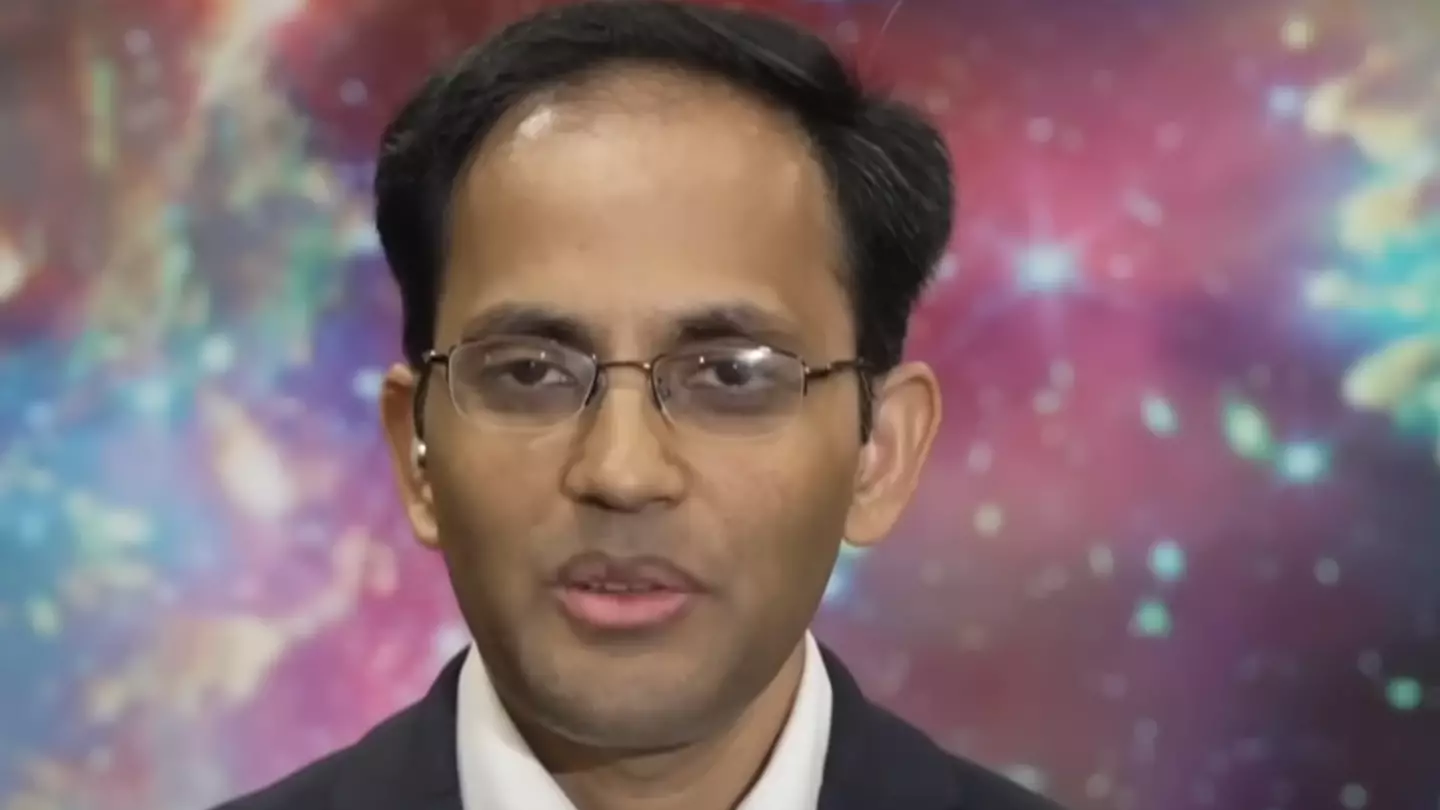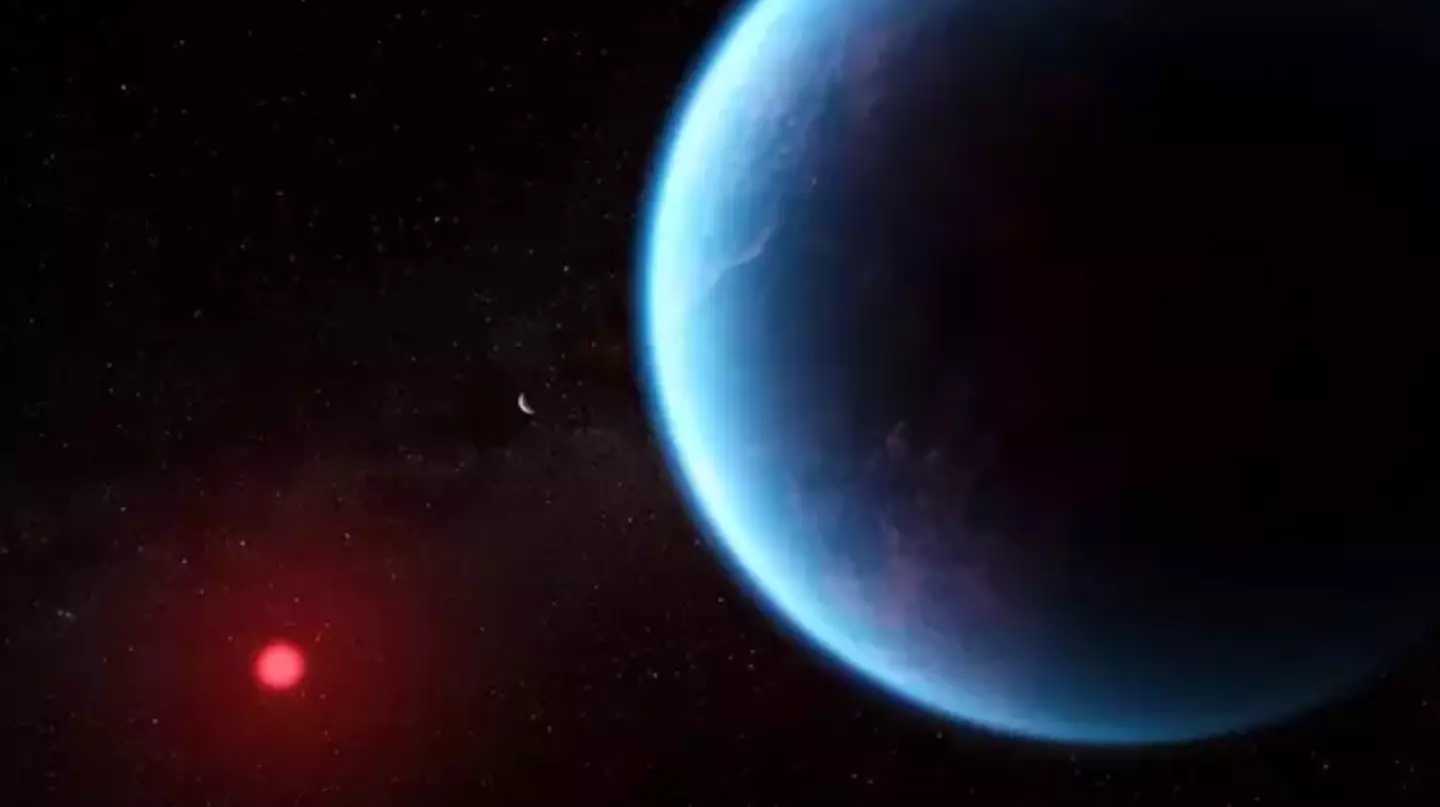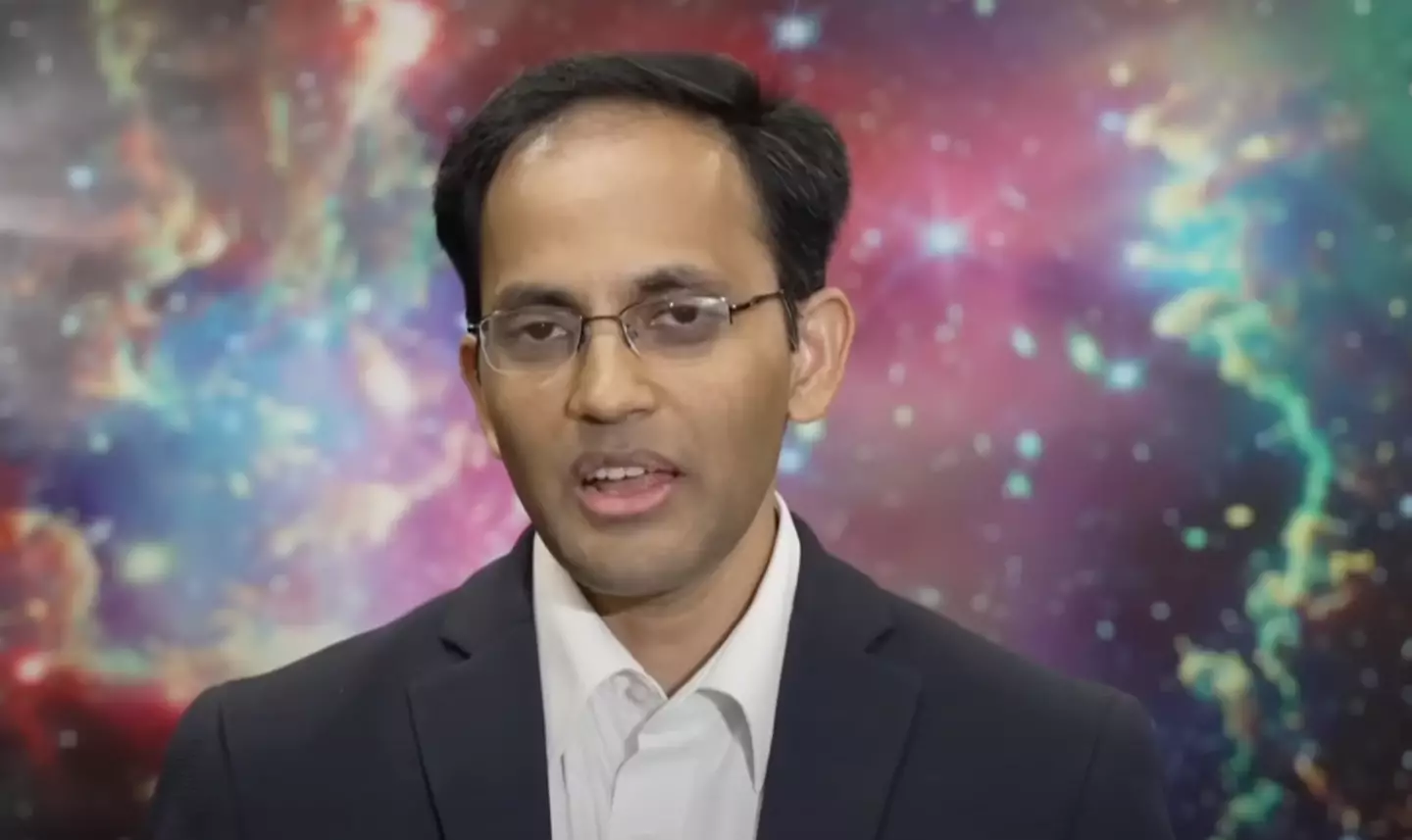
The scientist who came across 'a transformational moment in the history of the search for life' has explained how his team made the discovery.
Professor Nikku Madhusudhan of the University of Cambridge, and his team of researchers, made a breakthrough-find on planet K2-18b.
Located some 124 light-years away is a distant world approximately 2.6 times the size of Earth, well outside of our solar system.
Four years after the planet was discovered in 2015 by NASA’s Kepler Space Telescope, experts said it was first habitable-zone exoplanet where water was found.
Advert
Earlier this week, however, the detection of dimethyl sulfide (DMS) in K2-18b’s atmosphere blew the search for life wide open.
Professor Madhusudhan told Channel 4 News that 'this is the strongest hint we have ever seen in the history of science.'
Watch below:
The Professor of Astrophysics and Exoplanetary Science said no known non-biological processes can produce DMS in significant amounts, whereas on Earth, DMS is produced by marine microorganisms like plankton.
"So the simple assumption that we are making here is that these molecules are DMS, dimethyl sulfide, DMDs, dimethyl disulfide, or both," he explained.
"Now both those molecules are produced primarily by microorganisms in the Earth and DMS especially, a lot of it is produced by microorganisms like phytoplankton in the Earth's oceans."
The Cambridge research team made the discovery with The James Webb Space Telescope (JWST), the largest telescope in space.
But the actual method they used is something known as 'the transit technique, where you're seeing the star as the planet goes in front of it'.

He said: "So some of the starlight passes through the atmosphere of the planet before reaching the telescope, and imprinted on that star light, is absorption features from molecules in the planet's atmosphere.
"And we can estimate what that absorption is, and from that, we can estimate what the molecules in the planets are."
However, Professor Madhusudhan notes that they cannot 100 percent confirm that 'we have actually detected life'.
"What we are saying is that we have detected molecules that could potentially indicate the presence of life," he clarified.
The space expert noted that there are two things that need to be established before they can accurately verify anything.
"First, we want to improve on the detection significance itself. Are we really sure that these are the molecules we are seeing?" he added.

"This is a very important first step, and this is the strongest hints we have ever seen, like in the history of science, for such molecules outside the solar system.
"But that is not enough. We want to be even more robust to the point that it should be less than one in a million chance that it's a fluke, right?
"Second thing, we want to do more theoretical studies as well, to associate it with life.
"If we can confirm this discovery, then the general assessment would be that life would be common in the universe, even if microbial life, but still, the distances are very far from here."
Topics: Science, Aliens, NASA, James Webb Space Telescope